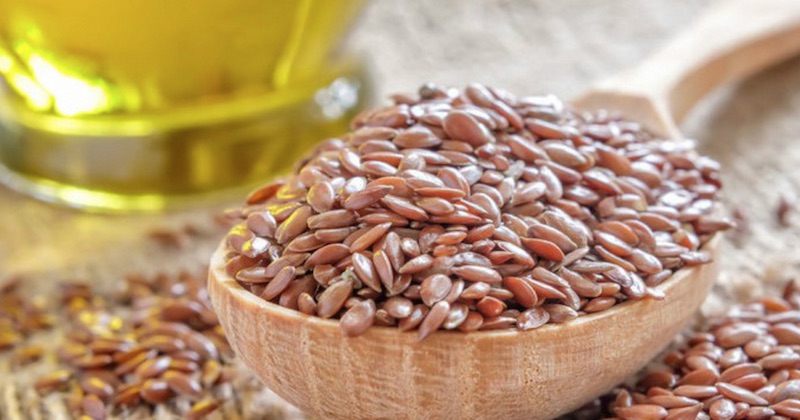How To Add Flaxseed To Your Juice For Its Immense Benefits
Last updated on
If you are into healthy eating, you’ve likely heard about what seeds can do for your diet and your overall health. Flaxseed is one of the best seeds you can add to your diet. Flaxseed is added to many foods to increase their health benefits, including crackers, waffles, and bread.
However, eating flaxseed as it is is the best way to enjoy its health benefits. When seeds are dried, produced, baked, or otherwise baked, the health advantages may be weakened. If you love juicing, you can get more flax in your diet by juicing flaxseed.
Health Benefits of Flaxseed
When you learn about the benefits of flaxseed, it may seem like there is little that this food cannot do. It is considered a whole food, so it can boost your calorie intake, give you the fat and fiber you need, and keep you feeling full. These are major health benefits of eating flaxseed:
- Minimizes cancer risk: The natural lignans found in flaxseed help balance hormones and have been proven to fight breast, prostate, ovarian and colon cancer. It may also reduce the risk of endometriosis and other reproductive issues due to its estrogenic properties.
- Protects against cardiovascular disease: Several studies have linked consumption of flaxseed to a lower risk of cardiovascular disease.
- Promotes weight loss: As flaxseed moves through your digestive system, it absorbs water. This keeps you feeling full for longer periods of time, which may help you stop unnecessary or unhealthy snacking.
- Strengthens digestive system: The high fiber content of flaxseed creates bulk for regular bowel movements. Healthy and regular bowel movements are an extremely important part of your overall health.
- Immune system support: Due to the its benefits for the support of the digestive tract, it greatly improves the immune system. The high antioxidant activities also ensures less free radicals that cause havoc in the body.
- Antiviral and antibacterial activities: Polyphenols support the growth of beneficial bacteria in the gut that prevent yeast and candida infections.
- Skin and hair: The ALA fats in flaxseed benefits the skin and hair by providing essential fats as well as the B vitamins that help reduce dryness and flakiness. As an anti-inflammatory food, it is excellent for reducing skin issues such as acne, eczema and psoriasis.
- Menopausal symptoms: Flaxseed helps rebalance the hormones and promote cellular health. The lignans in flaxseed have been shown to be beneficial for menopausal women. It can be used as an alternative to hormone replacement therapy (HRT) due to its estrogenic properties.
Differences Between Flaxseed and Flaxseed Oil
You may wonder if you can simply use flaxseed oil in your juicing recipes since flaxseed must be prepared prior to juicing. However, they are not the same ingredients and are not interchangeable.
Though flaxseed oil may have some health benefits in your juice, you can get many more health benefits from flaxseed. Flaxseed oil lacks the lignans, vitamins, and minerals that are naturally found in flaxseed.
Adding Flaxseed to Your Juicing Recipes
It’s important to note that flaxseeds are extremely dense and small. In most juicers, flaxseeds simply go right through the juicer without getting crushed or processed. This is fine if you want to chew the crunchy bits of your juice, but most people don’t.
Before putting flaxseed into your juicer, grind it finely and into more easily processed bits by running it through a coffee grinder or your slow juicer. Once the skin of the flaxseed is broken, it is easier for your juicer to break down the flaxseeds and mix it in your juice.
After the flaxseeds have been ground up, simply put them in your juicer with your fruits and vegetables. Flaxseeds have a fairly mild taste, so it will mix really well with any fruit and vegetable juice.
Make flaxseed a regular part of your diet by adding it into your juices. It is also great to be used for colon-cleansing like this.
Sources:
https://whfoods.org/genpage.php?tname=dailytip&dbid=105
https://articles.mercola.com/sites/articles/archive/2001/07/21/flaxseed-part-two.aspx
Some of the links I post on this site are affiliate links. If you go through them to make a purchase, I will earn a small commission (at no additional cost to you). However, note that I’m recommending these products because of their quality and that I have good experience using them, not because of the commission to be made.
Comments
Leave a Reply


































 JOIN OVER
JOIN OVER
How do I get the recipes
How much liquid do I add for 1 tablespoon of milled flax seeds?
As a drink how much liquid do I add to 1 tablespoon of milled flax seeds?
For more fiber in V8 can ground flaxseed be added?